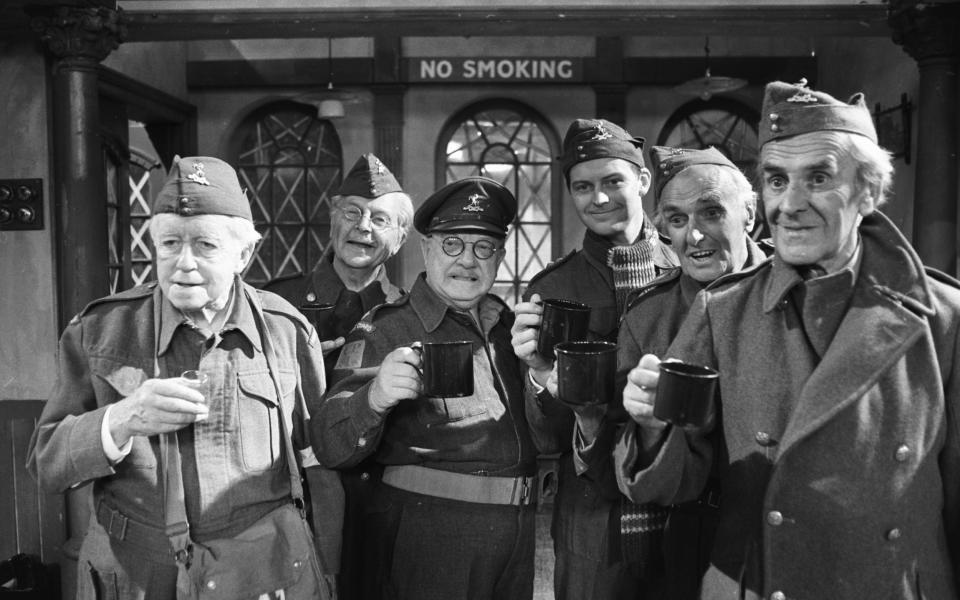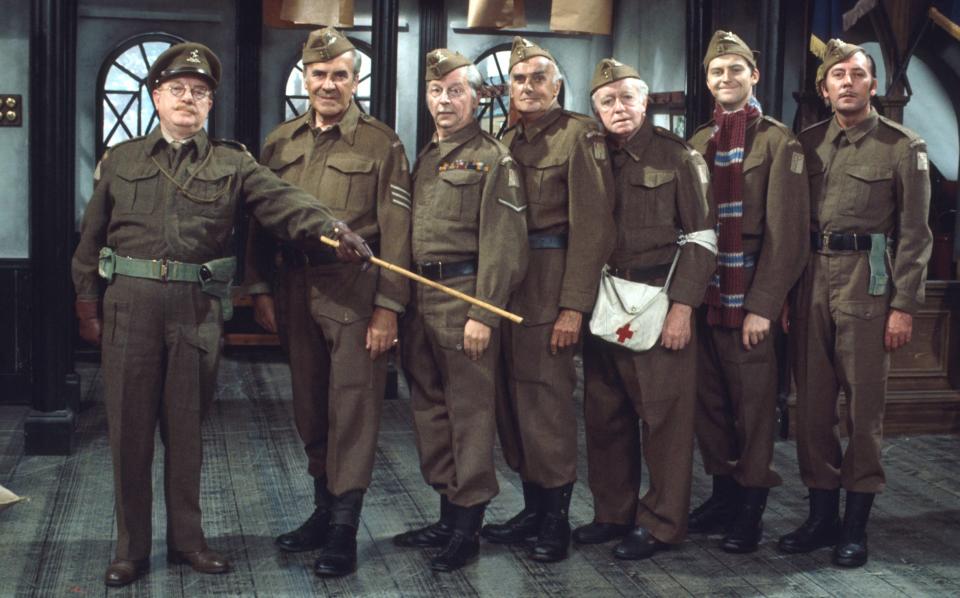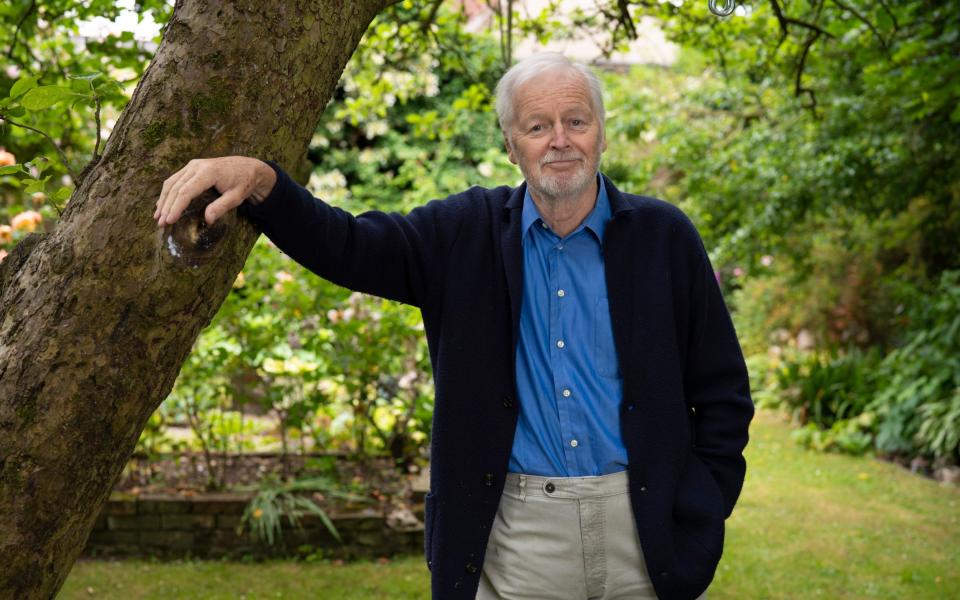The obituary pages often pay tribute to the last men and women who contributed to the war effort between 1939 and 1945. Those heroes of old must now rise up and make way for the least of military veterans: Private Pike of Dad’s Army.
Ian Lavender, who played Pike, was the last surviving member of the Home Guard who fearlessly defended the British coast against the German invasion at Walmington-on-Sea. In 1968 he was just twenty when he was cast, fresh-faced, in a new BBC sitcom, the youngster in a group of codgers, two of whom had been born in the 19th century.e century (John Laurie and Arnold Ridley). Most had passed away by the early 1980s, only Clive Dunn survived until 2012. Being the youngest member allowed Lavender to continue talking about the show as the remaining repository of memories. He accepted with grace the reality that Dad’s army was the only thing anyone ever wanted to ask him about. Including me when I met him in 2006.
“How can you be angry that people still want to talk about it?” he said. “Go to a young actor and say, ‘Here’s a script, it’s going to take ten years, so it’s going to keep you a good job, there’s a lot to do in between, there’s going to be repeat costs for the rest of your life.’ it creates work for you, but holds back other work.’ Show me the actor who says, ‘I don’t want to hear about that, I don’t want to be successful’.”
Private Pike was in a unique position. While many who watched Dad’s Army could remember the war, younger viewers – those supposedly liberated by the revolution of the 1960s – had only one character close to their own age with whom they could identify. And he was far from impressive. The spoiled bank clerk was immortally known as ‘Stupid Boy’ by Captain Mainwaring, his pompous bank manager. His weak chest had allowed him to avoid conscription, leaving him stranded far from the front lines in North Africa or Normandy among men too old to participate in the First World War, let alone the Second.


Through Pike, a gang show about class and age also became something else. There was comedy but also pathos in Pike’s unrelenting naivete, which was initially also Lavender’s. “I almost caused a strike in the first series by moving furniture on set,” he recalls. “I thought I was being helpful.” Wet behind the ears, Pike couldn’t understand why his overprotective mother was continuing with Sergeant Wilson, though the mystery never stopped gnawing at him.
“By the time we finish dinner,” he would puzzle, “it’s always so late, you don’t leave our house until after I go to bed and then you’re back early for breakfast before I wake up. But what I can’t understand is that I never hear you leave at night and I never hear you come in again.’
“Well, I let myself go in and out very quietly,” Wilson purrs.
“You don’t do anything else very quietly!”
Many of the older cast members had done serious and renowned work by the time they were cast in Dad’s Army. Lavender started tearing up the stage with noble intentions. “When I sat upright in those slip seats at the Old Vic as a student to see Olivier in Love for Love and Othello, it was everyone’s ambition to work at the National. We all wanted to be stars, we knew deep down that Olivier had to die at some point. I came out of Bristol Old Vic School and played the ‘juve’ leads: Florizel and Romeo. Dad’s Army would consist of six television series, a fun way to spend the summer.’


The show’s success ended his dream of playing Hamlet. Instead, he learned a different kind of trade from Arthur Lowe. “Arthur was a pompous little man with all that entails,” he recalled. “But he knew he was too and he played along, and eventually he let you in on the joke. Towards the end of that first series he took me aside and said, ‘Don’t worry if there aren’t many lines. They will come. In the meantime, buy a funny costume and join me.”
Lavender started wearing a burgundy and blue scarf, in tribute to his home club, Aston Villa, and David Croft and Jimmy Perry started writing about it and the mother’s son wrapped in it. Pike would be the butt of one of the most indelible jokes in all of British sitcoms. ‘Don’t tell him, Pike’ worked as a punchline because Pike was drawn in so beautifully detailed in the sixth series that every contour of his character was known: his stupidity, his irritability, his cowardice, but also his vulnerability. The joke works so well because it was quite clear that the Germans would mainly make mincemeat of pike.
Time would work on Lavender. The hair became as white as that of all his old colleagues, the midriff became swollen. Beyond Dad’s Army came work: The Glums, 240 episodes of EastEnders, even serious musical theater in the form of Into the Woods and Caroline, or Change. In a sentimental tribute to Dad’s Army, Victoria Wood gave him a cameo in her latest drama, That Day We Sang. He followed the advice of working comedy actor Roy Kinnear. “His philosophy was ‘Take the next job.’ It didn’t matter what it was. Thanks to Dad’s Army, there has always been one. Almost always.”


It was the best of British television, and it feels both poignant and meaningful that its last star has now left. Lavender himself became very accustomed to saying goodbye to his colleagues.
“My friends were fifty to forty years older than me,” he told me. “It was strange to get so close to people and lose them so quickly. There was obvious sadness, but I couldn’t feel like I had been cheated. I remember John Laurie saying at dinner one night, “Look at us at this table!” And he went around the whole cast and described us. He got us all.”
“Arthur Lowe, tenor number two. John Le Mesurier, dilettante. Jimmy Beck, a leading man of a dubious York representative. Arnold Ridley, failed playwright, failed film producer, failed director, failed actor. Ian Lavender, wet behind the ears, nothing done. Clive Dunn has played an old man all his life since his first day in the POW camp and now no longer needs the wig. And here I am who’s played every role in Shakespeare except Henry VIII, and that’s only because I was skinny. I became famous because of this nonsense!”
They all did, and no one was more grateful for it than the humblest old soldier in Dad’s army.